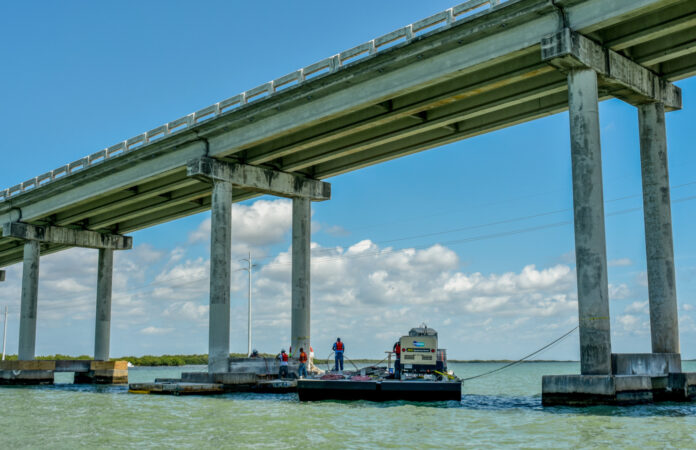Discussions among Monroe County officials over a potential transition to a charter county continued at a June 21 board of county commissioners meeting in Key Largo. Officials are examining the move to a charter county, which needs voter approval, in hopes to implement a 1-cent sales surtax, which also warrants approval by voters, to fund expensive road and bridge projects on the horizon.
Currently, Monroe County is unable to levy a penny sales surtax to fund road projects, bridge overhauls and other transportation-related expenses. That’s because Monroe is a non-charter county, isn’t a member of a regional transportation authority and isn’t under an interlocal agreement with an RTA. Instead, non-charter governments can seek approval from state legislators to levy such a tax.
Requests by county officials to the Florida Legislature to implement a penny transportation tax, however, haven’t gained movement with Tallahassees’s unwillingness to burden Florida residents with another tax. A push to extend the charter county and regional system surtax to 47 non-charter counties didn’t gain momentum supporters hoped to see during the legislative session. Many local governments are facing increased project costs as it relates to roads, transportation and transit systems.
Those costs are magnified in coastal communities, including the Keys, where king tide floods and heavy rainfall are wreaking havoc on local roads and communities like Twin Lakes and Stillwright Point in Key Largo. County officials are also seeking funds to replace aging Card Sound and Seven Mile bridges.
County Attorney Bob Shillinger informed three county commissioners in attendance at the June 21 meeting that staff is moving forward on putting together a charter, or written documents that confer power, duties and privileges on the county. Meanwhile, County Administrator Roman Gastesi recently met with city managers throughout the Keys as the charter discussion rollout begins.
According to Shillinger, there was “general positivity” from city managers who wanted to learn more. Shillinger said the county is planning to visit commissions and councils up and down the Keys as early as September to present their intentions for a potential conversion to a charter county. Voters will have the ultimate say in whether Monroe should become a charter county. And then the question becomes whether county voters will support the penny surtax to fund transportation projects.
“If the voters would approve us being a charter county, the commission can’t just decide on their own to levy the transportation tax,” said County Commissioner Jim Scholl. “It has to go back out to the voters to approve. It’s an option that provides that availability to us. It’s better to have it and not need it than to need it and not have it, in my opinion.”
Key Largo resident John Millhiser expressed some concerns over the possible move to a charter county. While it could give the county the chance to levy a transportation surtax with voter approval, Millheiser said charter counties can also implement surtaxes on utilities like water and electricity. Mayor Pro Tem Holly Merrill Raschein said that’s not something the county is seeking to do, and Shillinger said the county isn’t contemplating such an action.
Millhiser believes that Monroe isn’t big enough to be a charter county. Five charter counties that adopted a transportation sales tax have a population averaging 1.8 million people.
“That’s 1.72 million people more than Monroe County,” he said.
Twenty of the 67 Florida counties operate under a charter, and Shillinger said three-quarters of the Florida population live within charter counties. Eighteen of the 20 charter counties have larger populations than Monroe County. The other two are smaller in population, with Wakulla County’s 33,760 residents and Columbia County’s nearly 70,000 residents.
“It has historically been larger counties, but it’s not exclusively larger counties,” Shillinger said.
Charters in other counties allow county rules to preempt city rules, meaning the cities of Key West, Marathon, Key Colony Beach, Islamorada and Layton would lose their autonomy and be subject to the power of the county. But county officials have expressed they have no desire in interfering with other municipal operations. County Commissioner Michelle Lincoln reiterated that a move to potentially become a charter county isn’t a power grab by the county on local cities.
“We don’t want to preempt our municipalities. They are our partners. That is something I don’t have an appetite for creating our new charter,” she said.
Shillinger, who agreed with Lincoln, said language can be crafted as it relates to municipal preemption, requiring a supermajority of the referendum of county voters to approve any change to the provision that protects local municipalities.
“I’ve had conversations with the Polk County attorney; they have a 60% threshold for changes to their charter,” he said. “It’s never been challenged. We have 60% for state constitutional amendments, so I think 60% is clearly defensible.”

























